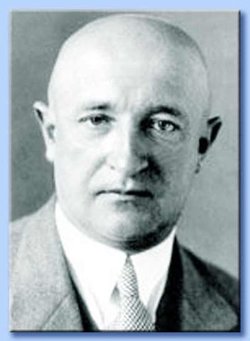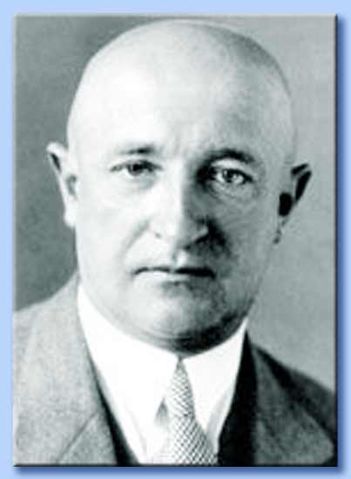An influential philosopher in Nazi Germany, Baeumler used Friedrich Nietzsche's philosophy to legitimize Nazism. Thomas Mann read Baeumler's work on Nietzsche in the early 1930s, and characterized passages of it as "Hitler prophecy". Baeumler's 1931 book Nietzsche, der Philosoph und Politiker states:
A theory of the state is not to be found in Nietzsche's work – but this work has opened all paths towards a new theory of the state. … His attack on the "Empire" arises from the feeling of a world-historical task that awaits us. He wanted to hear nothing of the state as a moral organism in Hegel's sense, he also wanted to hear nothing of Bismarck's Christian Lesser Germany ("Kleindeutschland"). Before his eyes stood the task of our race: the task of being leader of Europe. … What would Europe be without the Germanic North? What would Europe be without Germany? A Roman colony. … Germany can only exist world-historically in the form of greatness. It has the choice to exist as the anti-Roman power of Europe, or not to exist. … The German state of the future will not be a continuation of Bismarck's creation, but will be created out of the spirit of Nietzsche and the spirit of the Great War (from pp. 180–183. Italics in the original).
His books were published in Italy in the late 1990s by the Edizioni di Ar, a far-right publishing house.
An influential philosopher in Nazi Germany, Baeumler used Friedrich Nietzsche's philosophy to legitimize Nazism. Thomas Mann read Baeumler's work on Nietzsche in the early 1930s, and characterized passages of it as "Hitler prophecy". Baeumler's 1931 book Nietzsche, der Philosoph und Politiker states:
A theory of the state is not to be found in Nietzsche's work – but this work has opened all paths towards a new theory of the state. … His attack on the "Empire" arises from the feeling of a world-historical task that awaits us. He wanted to hear nothing of the state as a moral organism in Hegel's sense, he also wanted to hear nothing of Bismarck's Christian Lesser Germany ("Kleindeutschland"). Before his eyes stood the task of our race: the task of being leader of Europe. … What would Europe be without the Germanic North? What would Europe be without Germany? A Roman colony. … Germany can only exist world-historically in the form of greatness. It has the choice to exist as the anti-Roman power of Europe, or not to exist. … The German state of the future will not be a continuation of Bismarck's creation, but will be created out of the spirit of Nietzsche and the spirit of the Great War (from pp. 180–183. Italics in the original).
His books were published in Italy in the late 1990s by the Edizioni di Ar, a far-right publishing house.
Sponsored by Ancestry
Advertisement
Records on Ancestry
Sponsored by Ancestry
Advertisement



